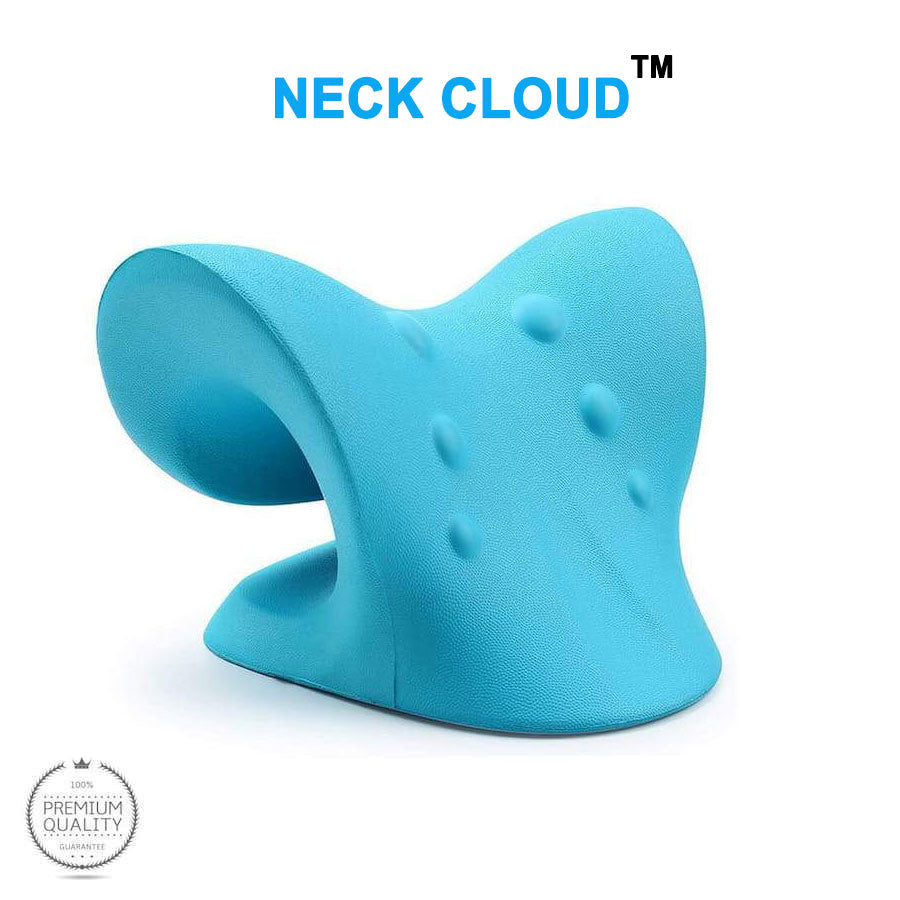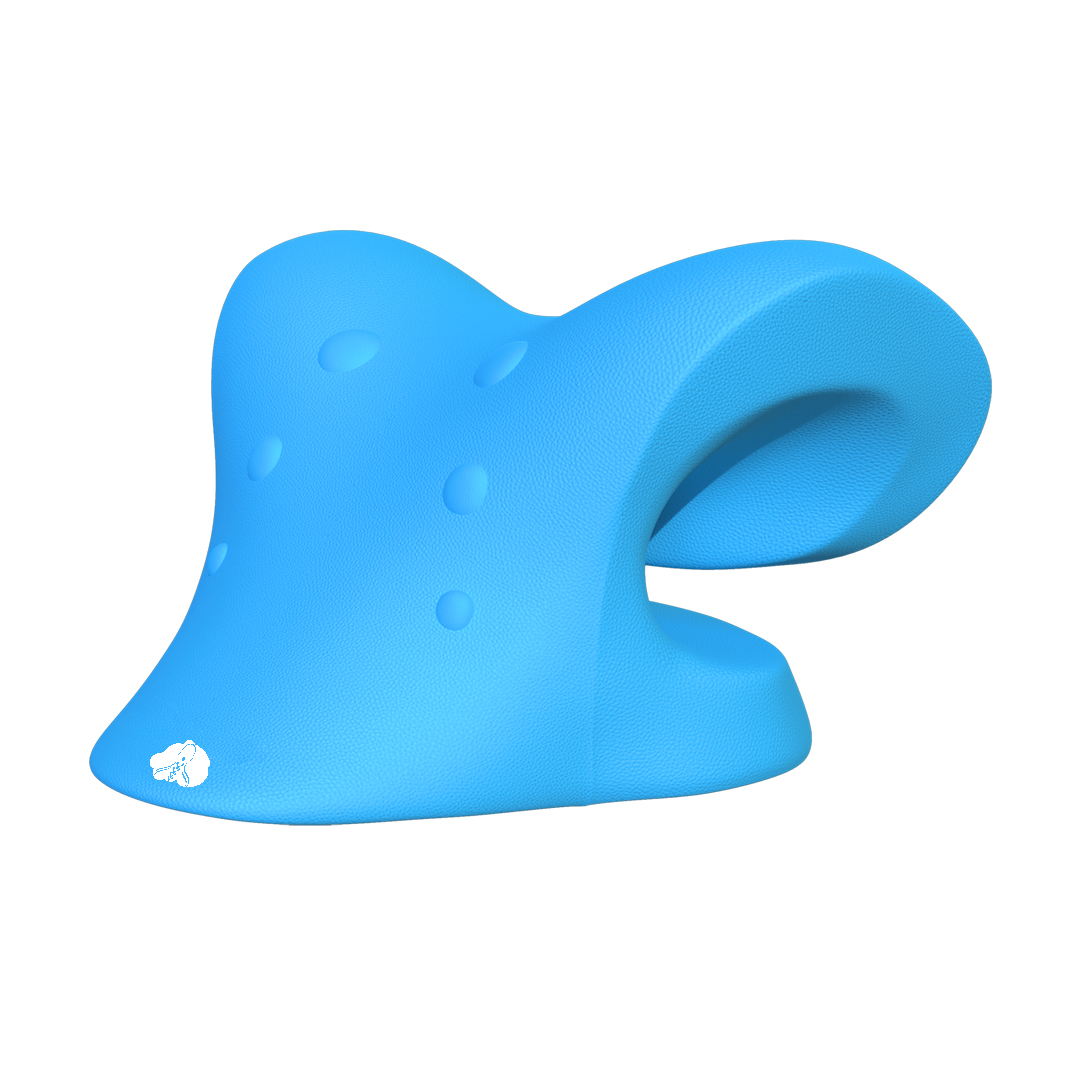Why the Neck Cloud is a Must-Have for Alleviating Neck Tension
Why the Neck Cloud is a Must-Have for Alleviating Neck Tension
Blog Article
The Impact of Tension on Neck Pain: Strategies for Lowering Tension and Pain
In today's hectic world, it's obvious that anxiety has come to be a prevalent consider the start and worsening of neck pain. The detailed partnership in between stress and muscle stress usually leaves people looking for remedy for the pain that occurs. By discovering targeted techniques targeted at lowering tension and promoting relaxation, one can start to address the source of neck pain and work in the direction of a much more balanced state of health. Join us on a trip to unwind the influence of anxiety on neck discomfort and discover effective methods to minimize pain and enhance overall top quality of life.
Comprehending Stress-Related Neck Pain
Neck discomfort is an usual problem that can typically be credited to stress and anxiety. Stress-related neck pain can manifest as tension, tightness, or discomfort in the neck and shoulder location. The connection between stress and anxiety and neck pain depends on the body's physical reaction to anxiety, which can result in muscular tissue tension and rigidity in the neck muscles. Persistent stress and anxiety can bring about persistent neck pain and exacerbate status quo like cervical spondylosis or muscular tissue stress.

Identifying Common Tension Locations
One usual stress area is the neck, where stress often materializes literally. Stress headaches, tight neck muscle mass, and limited array of activity are usual signs and symptoms of stress-related neck tension. Being mindful of these common tension areas can help people identify the physical signs of tension and take steps to resolve them before they intensify into chronic discomfort or discomfort.
Applying Leisure Methods
To properly manage stress-related stress in the body, implementing leisure techniques is important. Leisure methods are important tools for reducing neck discomfort brought on by tension. Deep breathing workouts can aid soothe the mind and unwind tense muscles in the neck and shoulders (neck cloud). Practicing mindfulness reflection can likewise be helpful in easing stress and advertising leisure. Dynamic muscle mass leisure, where you methodically tense and afterwards kick back different muscle teams, can launch built-up tension in the neck area. In addition, tasks like yoga exercise and tai chi integrate both physical activity and leisure, making them efficient practices for minimizing stress and anxiety and neck discomfort. Taking regular breaks throughout the day check this to stretch and unwind can prevent muscle stiffness and stress from gathering. By including these leisure methods right into your everyday routine, you can aid handle anxiety levels, reduce tension in the neck, and minimize discomfort related to stress-induced neck discomfort.
Including Self-Care Practices
Incorporating self-care techniques is necessary for keeping total well-being and managing stress-related neck discomfort effectively. Involving in routine exercise, such as gentle extending exercises or yoga, can assist minimize tension in the neck and shoulders. Exercising good stance throughout the day and taking constant breaks from prolonged sitting or display time can also stop strain on the neck muscular tissues.
Furthermore, focusing on appropriate sleep and developing a constant sleep regimen can contribute significantly to lowering tension levels and advertising leisure. Developing a soothing going to bed regimen, such as reading a book or taking a cozy bathroom, can assist prepare the mind and body for restful sleep. Furthermore, keeping a well balanced diet plan abundant in nutrients and remaining moistened can support overall wellness and reduce swelling that may exacerbate neck pain.
Integrating mindfulness techniques, such as deep breathing workouts or reflection, can aid manage anxiety and advertise relaxation. Taking time for oneself, involving in hobbies, and establishing boundaries to secure like this individual time are additionally essential elements of self-care that can contribute to minimizing stress and anxiety and relieving neck discomfort.
Looking For Expert Assistance
Exactly how can individuals efficiently resolve persistent neck pain that is affecting their daily life and health? Seeking expert help can be an essential step in handling and relieving neck pain.
Chiropractic doctors concentrate on spine manipulation techniques to enhance positioning and reduce stress in the neck area. Physical therapists provide targeted exercises and stretches to enhance muscle mass, improve versatility, and improve total neck feature. Orthopedic professionals can offer sophisticated medical interventions such as injections or surgical alternatives for serious instances of neck pain.
Verdict
Stress-related neck discomfort can manifest as stress, tightness, or discomfort in the neck and shoulder area. The link look at here in between stress and anxiety and neck pain exists in the body's physiological reaction to anxiety, which can result in muscular tissue stress and rigidity in the neck muscular tissues. Stress headaches, rigid neck muscles, and limited array of motion are usual signs and symptoms of stress-related neck tension. By integrating these relaxation methods right into your day-to-day routine, you can assist take care of stress and anxiety levels, decrease stress in the neck, and relieve discomfort connected with stress-induced neck pain.

Report this page